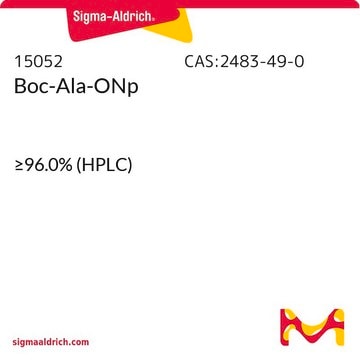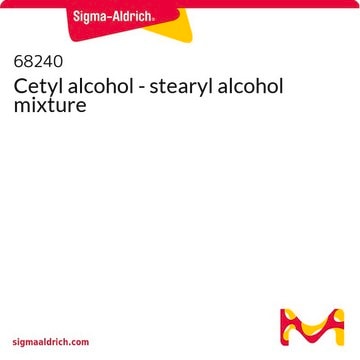W255408
1-Hexadecanol
≥99%
Synonym(s):
Cetyl alcohol, Palmityl alcohol
About This Item
Recommended Products
biological source
synthetic
Quality Level
Agency
meets purity specifications of JECFA
reg. compliance
FDA 21 CFR 172.515
vapor density
8.34 (vs air)
vapor pressure
<0.01 mmHg ( 43 °C)
Assay
≥99%
autoignition temp.
483 °F
expl. lim.
8 %
bp
179-181 °C/10 mmHg (lit.)
Looking for similar products? Visit Product Comparison Guide
Related Categories
General description
Disclaimer
Storage Class Code
11 - Combustible Solids
WGK
nwg
Flash Point(F)
Not applicable
Flash Point(C)
Not applicable
Personal Protective Equipment
Choose from one of the most recent versions:
Already Own This Product?
Find documentation for the products that you have recently purchased in the Document Library.
Customers Also Viewed
Our team of scientists has experience in all areas of research including Life Science, Material Science, Chemical Synthesis, Chromatography, Analytical and many others.
Contact Technical Service









